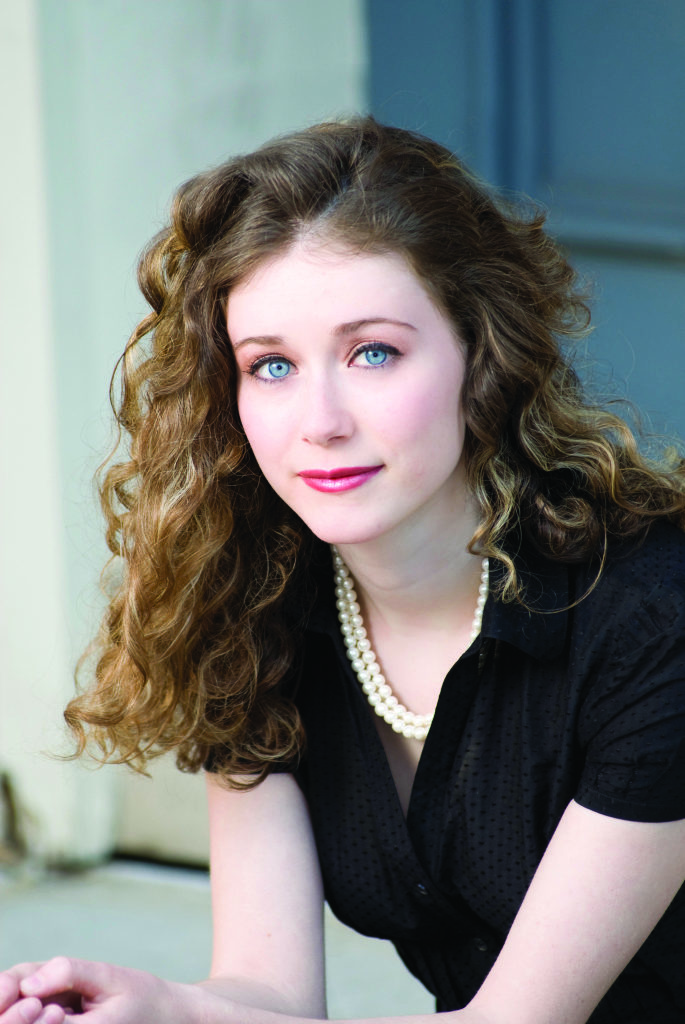Off to the Underworld with BCOC
A preview by Betsy Schwarm
Boy loves girl – boy loses girl – boy gets girl back (almost): it’s one of the most timeless of all plot-lines, inhabiting countless novels, plays, ballets, and operas. It’s also the theme of Orfeo by Claudio Monteverdi (1567 – 1643). Orfeo tells the Greek myth of Orpheus, whose singing so charmed the denizens of the Underworld that the spirit of his late love Euridice was freed from the land of the dead to return to the living. In the original myth, their happiness does not last. However, that fact does not prevent it from being a thoroughly singable story, and Monteverdi brought it the stage in musical/dramatic form in 1607, thus predating the most frequently performed Baroque operas by at least a century. In May, the Baroque Chamber Orchestra of Colorado will present Orfeo, giving Denver-area audiences a rare chance to experience the most famous of all early Baroque operas.

BCOC artistic director Frank Nowell has long had Orfeo on his wish list. “Orfeo is not just a historical artifact,” he says. “It’s recognized and acknowledged as a great work of art.” Nowell adds that he’s intrigued by what he calls “Monteverdi’s sound world”: “I’m completely blown away that he was such an innovator and a maverick, with a clear vision of how to express emotion through music. He cares passionately about capturing the widest range of human experience.”

The way Monteverdi approaches those experiences may startle some listeners, if they’re unfamiliar with early Baroque musical idioms. The singing style is not Handel, or even Mozart, let alone Verdi. The orchestra is largely string focused – until the tale descends into the Underworld; apparently, the voice of hell is that of brass instruments.

As for the singers, the musical line is, according to soprano Nola Richardson, “more often secondary to the declamation of the text.” It’s acting with the voice, as much as it is singing, something that is less frequently the case in late Baroque opera. By Handel’s time, composers had developed the tendency of repeating lines of text again and again to allow for musical variation. Monteverdi preferred to keep the story moving. Tenor Aaron Sheehan agrees with Richardson that the music “is intended to really be an extension of spoken theater.” That being said, early Baroque vocal practice does have its flamboyant touches, notably the so-called “trillo” ornaments, with very rapid articulation of a single note in the throat, rather as one might giggle. It’s a different way of singing, challenging for the singers, but not really for the listener. Nowell emphasizes, “if you just tap into the emotion, it still works for a modern audience.”
Rather than being fully staged, BCOC’s Orfeo will be given concert-form. There will be no sets, props, and costumes, and minimal interaction between the singers, as Nowell says, “just enough to be able to convey the drama to the audience.” Normally, BCOC is a conductor-less ensemble. However, with something as complex as Orfeo, it’s usually best to have someone experienced at the helm, someone to whom the performers can look for guidance and coordination. Nowell himself will be tending to the keyboard parts, but a guest conductor will be on hand.

Guest conductor Stephen Stubbs brings specific knowledge of the work, having previously staged productions of Orfeo both with the Boston Early Music Festival and with Seattle’s Pacific MusicWorks. A Baroque opera specialist, when not actively conducting the BCOC performances, Stubbs will have his bass lute in hand to join in the instrumental parts. Of Orfeo, he says he is particularly struck by “the way that he [Monteverdi] has synthesized all of the best elements of this emerging genre and built them around a central emotional moment of great power – the moment where Orfeo turns back and loses Eurydice. There are many delights before and after – the celebration of Arcadia at the wedding with beautiful songs, choruses and dances, the depiction of Pluto’s realm and the final agonies of Orpheus after his return to earth empty-handed. But it is the fact that everything revolves around this one critical moment, so dramatically portrayed, that holds the whole piece together and keeps it as fresh for us as it was in 1607.”

Some of the instruments in the ensemble may be not immediately familiar to all listeners. The strings include the chitarrone, a type of bass lute which, as Stubbs notes, “follows him [Orpheus] throughout his emotional journey, and expresses with him all the nuances of that journey.” If one imagines Orpheus as a troubadour, the chitarrone is perhaps his guitar. Recorders and more conventional string instruments also appear when the music is meant to be suggestive of the bliss of Arcadia, before Orpheus’ beloved Euridice dies.
There is also leading lady Euridice, sung by soprano Nola Richardson. Her name and voice will be familiar to many BCOC regulars, thanks to her appearance here in Denver last December in the ensemble’s Bach’s Cantata no. 51 “Jauchzet Gott” and excerpts from Messiah. In Orfeo, she’ll need to manage not just the notes, but also add personality to her singing, making Euridice more than just a plot device to set Orpheus on his mission. Richardson says the libretto reveals Euridice as “a calmer, more restrained, and internalized character” than Orpheus. He is “effusive,” Richardson feels, whereas Euridice is “reticent,” so both in terms of the drama and the music, Euridice is the less flamboyant of the two. Additionally, Richardson will handle the role of Proserpine, reluctant queen of the Underworld, who Monteverdi shapes as an advocate for the sweethearts. If Euridice is cautious in her feelings, Proserpine is downright cold: Richardson will make a point to color her voice differently from one role to the other, and audiences can listen for the difference.

For the Underworld, Monteverdi turned largely to brass, though vintage forms of the instruments: cornetti (not the same as cornets) and sackbuts (early trombones); Baroque trumpets had been featured in the Prologue. These instruments Monteverdi would soon come to know well in the context of his decades of employment at St. Mark’s in Venice. For BCOC’s Orfeo, some of these brass players have been recruited from the Dark Horse Consort, which specializes in this area. There will also be keyboard instruments, not merely the oh-so-Baroque harpsichord and organ, but also the regal, a portable reed organ. Stubbs describes it as “nasty sounding,” by which he means no disrespect. Rather, its dark and unearthly flavor is perhaps ideal for Underworld visions, in this case, particularly when accompanying Caronte [Charon] ferryman on the River Styx.

At the core of the story will be tenor Aaron Sheehan in the title role of Orpheus. The character has a gamut of emotions to cover: from joy and camaraderie through pain and sorrow, then what Sheehan describes as “strength to face your fears,” the vow to regain that lost love, success, and then loss once more. As Sheehan remarks, “I think it is a story we have all gone through.” Moreover, it’s a role he has performed before to high acclaim; Sheehan’s 2015 performance in Boston led the Boston Musical Intelligencer to observe, “the audience came to understand how mere music might melt even the icy heart [of Caronte.]” Vulnerable moments are set low in the tenor’s range; stronger emotions lie high, the better to bring out the emotional subtext. Although other characters also have their time in the spotlight, Orfeo is often Orpheus’ story, and it will be Sheehan’s task – challenging, but fulfilling – to make that story feel real.
The Baroque Chamber Orchestra of Colorado, with guest artists, will give two performances of Orfeo: Saturday, May 11, at 7:30pm at the King Center on the Auraria Campus, and Sunday, May 12, at 4:00 pm at Christ Episcopal Church, 2950 South University, between Yale and Dartmouth Avenues in Denver. For both performances, the ensemble intends to have English texts projected so that the audience can read along as the Italian lyrics are performed. It’s a rare – and treasurable – opportunity to experience one of the earliest of all operas, and discover how much of the essence of the art form was already in place even in 1607. That is, “in place” as long as the composer was Monteverdi.
Tickets – and full cast information – are available at the BCOC website:







